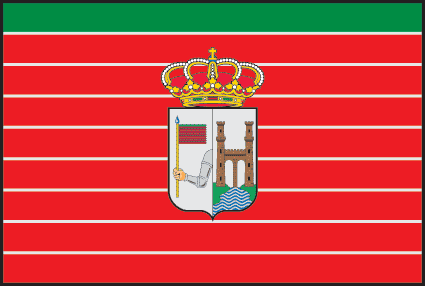
HEAD OF THE STATE - KING PHILLIP VI
Section 56 1. The King is the Head of State, the symbol of its unity and permanence. He arbitrates and moderates the regular functioning of the institutions, assumes the highest representation of the Spanish State in international relations, especially with the nations of its historical community, and exercises the functions expressly conferred on him by the Constitution and the laws2. His title is that of King of Spain, and he may use the other titles appertaining to the Crown.3. The person of the King is inviolable and shall not be held accountable. His acts shall always be countersigned in the manner established in section 64. Without such countersignature they shall not be valid, except as provided under section 65.
aLEGISLATIVE POWER ( Creates legislation)
CORTES GENERALES
www.congreso.es/consti/constitucion/indice/titulos/articulos.jsp?ini=66&fin=96
a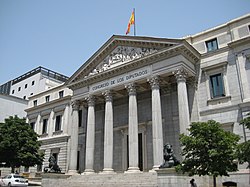
CONGRESO DE LOS DIPUTADOS
Section 661. The Cortes Generales represent theSpanish people and shall consist of the Congressand the Senate.2. The Cortes Generales exercise the legislativepower of the State and adopt its Budget,control the action of the Government andhave the other competences assigned by theConstitution.3. The Cortes Generales are inviolable.Section 671. No one may be a member of both Housessimultaneously, or be a representative inthe Assembly of a Self-governing Communityand a Member of Congress at the same time.2. Members of the Cortes Generales shallnot be bound by any compulsory mandate.3. Meetings of members of Parliamentwhich are held without having been called inthe statutory manner, shall not be binding onthe Houses, and members may not exercisetheir functions nor enjoy their privileges.Section 681. The Congress shall consist of a minimumof three hundred and a maximum of fourhundred Members, elected by universal, free,equal, direct and secret suffrage, under theterms to be laid down by the law.2. The electoral constituency is the province.The cities of Ceuta and Melilla shall be representedby one Member each. The totalnumber of Members shall be distributed in accordancewith the law, each constituencybeing allotted a minimum initial representationand the remainder being distributed in proportionto the population.3. The election in each constituency shallbe conducted on the basis of proportional representation.4. The Congress is elected for four years.The term of office of Members thereof endsfour years after their election or on the day onwhich the Congress is dissolved.5. All Spaniards entitled to the full exerciseof their political rights shall be electors andmay be elected.The law shall recognise and the Stateshall facilitate the exercise of the right ofvote by Spaniards who are outside Spanishterritory.6. Elections shall take place between thirtyand sixty days after the end of the previousterm of office. The Congress so elected mustbe convened within twenty-five days followingthe holding of elections.

ANA MATO
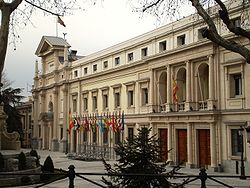
SENADO
Section 691. The Senate is the House of territorial representation.2. In each province, four Senators shall beelected by the voters thereof by universal,free, equal, direct and secret suffrage, underthe terms to be laid down by an organic act.3. In the insular provinces, each island orgroup of islands with a Cabildo or insularCouncil shall be a constituency for the purposeof electing Senators; there shall be threeSenators for each of the major islands —GranCanaria, Mallorca and Tenerife— and one foreach of the following islands or groups of islands:Ibiza-Formentera, Menorca, Fuerteventura,Gomera, Hierro, Lanzarote and La Palma.4. The cities of Ceuta and Melilla shallelect two Senators each.5. The Self-governing Communities shall,in addition, appoint one Senator and a furtherSenator for every million inhabitants in theirrespective territories. The appointment shallbe incumbent upon the Legislative Assemblyor, in default thereof, upon the Self-governingCommunity’s highest corporate body as providedfor by its Statute which shall, in any case,guarantee adequate proportional representation.6. The Senate is elected for four years.The Senators’ term of office shall end four yearsafter their election or on the day on whichthe House is dissolved.

PÍO GARCÍA- ESCUDERO
GOVERMENT
Section 661. The Cortes Generales represent theSpanish people and shall consist of the Congressand the Senate.2. The Cortes Generales exercise the legislativepower of the State and adopt its Budget,control the action of the Government andhave the other competences assigned by theConstitution.3. The Cortes Generales are inviolable.Section 671. No one may be a member of both Housessimultaneously, or be a representative inthe Assembly of a Self-governing Communityand a Member of Congress at the same time.2. Members of the Cortes Generales shallnot be bound by any compulsory mandate.3. Meetings of members of Parliamentwhich are held without having been called inthe statutory manner, shall not be binding onthe Houses, and members may not exercisetheir functions nor enjoy their privileges.Section 681. The Congress shall consist of a minimumof three hundred and a maximum of fourhundred Members, elected by universal, free,equal, direct and secret suffrage, under theterms to be laid down by the law.2. The electoral constituency is the province.The cities of Ceuta and Melilla shall be representedby one Member each. The totalnumber of Members shall be distributed in accordancewith the law, each constituencybeing allotted a minimum initial representationand the remainder being distributed in proportionto the population.3. The election in each constituency shallbe conducted on the basis of proportional representation.4. The Congress is elected for four years.The term of office of Members thereof endsfour years after their election or on the day onwhich the Congress is dissolved.5. All Spaniards entitled to the full exerciseof their political rights shall be electors andmay be elected.The law shall recognise and the Stateshall facilitate the exercise of the right ofvote by Spaniards who are outside Spanishterritory.6. Elections shall take place between thirtyand sixty days after the end of the previousterm of office. The Congress so elected mustbe convened within twenty-five days followingthe holding of elections.
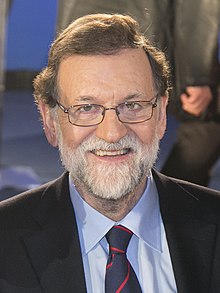
( EX-PRESIDENT M.RAJOY)
EX-MINISTERS
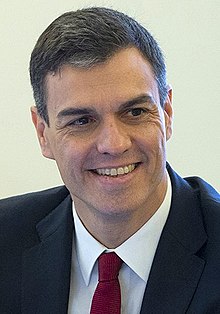
PRESIDENT (PEDRO SÁNHEZ)
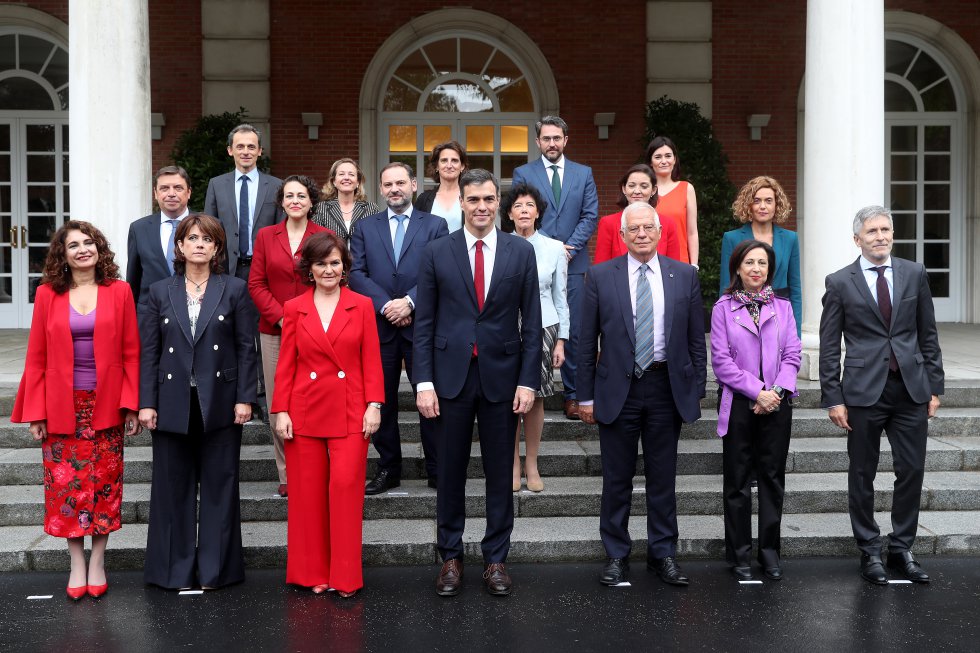
MINISTERS
JUDICIAL POWER (Interpret and apply the laws)
PART IXThe Constitutional CourtSection 1591. The Constitutional Court shall consist of twelve members appointed by the King. Of these, four shall be nominated by the Congress by a majority of three-fifths of its members, four shall be nominated by the Senate with the same majority, two shall be nominated by the Government, and two by the General Council of the Judicial Power.2. Members of the Constitutional Court shall be appointed among magistrates and prosecutors, university professors, public officials and lawyers, all of whom must have a re- cognised standing with at least fifteen years’ practice in their profession.3. Members of the Constitutional Court shall be appointed for a period of nine years and shall be renewed by thirds every three years.4. Membership of the Constitutional Court is incompatible with any position of a representative nature, any political or administrative office, a management position in a political party or a trade union as well as any employment in their service, active service as a judge or prosecutor and any professional or business activity whatsoever. Incompatibilities for members of the Judicial Power shall also apply to members of the Constitutional Court.5. Members of the Constitutional Court shall be independent and enjoy fixity of tenure during their term of office.Section 160The President of the Constitutional Court shall be appointed by the King among its members, on the proposal of the full Court itself, for a term of three years.Section 161The Constitutional Court has jurisdiction over the whole Spanish territory and is entitled to hear:a) Against the alleged unconstitutionality of acts and statutes having the force of an act. A declaration of unconstitutionality of a legal pro- vision having the force of an act and that has already been applied by the Courts, shall also affect the case-law doctrine built up by the latter, but the decisions handed down shall not lose their status of res judicata.b) Individual appeals for protection (recursos de amparo) against violation of the rights and freedoms contained in section 53(2) of the Constitution, in the circumstances and manner to be laid down by law.c) Conflicts of jurisdiction between the State and the Self-governing Communities or between the Self-governing Communities themselves.d) Other matters assigned to it by the Constitution or by organic acts.The Government may appeal to the Constitutional Court against provisions and resolutions adopted by the bodies of the Self-governing Communities, which shall bring about the suspension of the contested provisions or resolutions, but the Court must either ratify or lift the suspension, as the case may be, within a period of not more than five months.

TRIBUNAL SUPLREMO
Section 1231. The Supreme Court, with jurisdictionover the whole of Spain, is the highest judicialbody in all branches of justice, except with regardto provisions concerning constitutionalguarantees.2. The President of the Supreme Courtshall be appointed by the King, on the GeneralCouncil of the Judicial Powers’ proposal in themanner to be laid down by the law.Section 1241. The Office of Public Prosecutor, withoutprejudice to functions entrusted to other bodies,has the task of promoting the operation of justicein the defence of the rule of law, of citizens’rights and of the public interest as safeguardedby the law, whether ex officio or at the request ofinterested parties, as well as that of protectingthe independence of the courts and securingbefore them the satisfaction of social interest.2. The Office of Public Prosecutor shalldischarge its duties through its own bodies inaccordance with the principles of unity of operationand hierarchical subordination, subjectin all cases to the principles of the rule of lawand of impartiality.3. The organic statute of the Office of thePublic Prosecutor shall be laid down by law.4. The State’s Public Prosecutor shall beappointed by the King on the Government’sproposal after consultation with the GeneralCouncil of the Judicial Power.
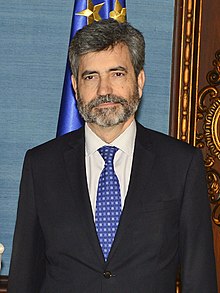
PRESIDENTE. CARLOS LESMES

TRIBUNAL CONSTITUCIONAL
The Organic Act of the Judicial Powershall make provision for the setting up, operationand internal administration of courts andtribunals as well as for the legal status of professionaljudges and magistrates, who shallform a single body, and of the staff serving inthe administration of justice.2. The General Council of the Judicial Poweris its governing body. An organic act shalllay down its status and the system of incompatibilitiesapplicable to its members and theirfunctions, especially in connection with appointments,promotions, inspection and thedisciplinary system.3. The General Council of the Judicial Powershall consist of the President of the SupremeCourt, who shall preside it, and of twentymembers appointed by the King for a five-yearperiod, of which twelve shall be judges and magistratesof all judicial categories, under theterms provided for by the organic act; four nominatedby the Congress and four by the Senate,elected in both cases by three-fifths oftheir members amongst lawyers and other juristsof acknowledged competence with morethan fifteen years of professional practice.

PRESIDENTE. J.J GONZÁLEZ RIVAS
MOTION OF CONFIDENCE
ART.114
Section 1141. If the Congress withholds its confidencefrom the Government, the latter shall submit itsresignation to the King, whereafter the Presidentof the Government shall be nominated inaccordance with the provisions of section 99.2. If the Congress adopts a motion of censure,the Government shall submit its resignationto the King, and the candidate proposed inthe motion of censure shall be deemed to havethe confidence of the House for the purposesprovided in section 99. The King shall appointhim or her President of the Government.

NATIONAL LEVEL
CORTES DE CASTILLA Y LEÓN
Subtema
Section 1481. The Self-governing Communities mayassume competences over the following matters:1. Organization of their institutions of selfgovernment.2. Changes in municipal boundaries withintheir territory and, in general, functions appertainingto the State Administration regardinglocal Corporations, whose transfer may beauthorised by legislation on local governement.3. Town and country planning and housing.4. Public works of interest to the Self-governingCommunity, within its own territory.5. Railways and roads whose routes lieexclusively within the territory of the Self-governing Community and transport by theabove means or by cable fulfilling the sameconditions.6. Ports of haven, recreational ports and airportsand, in general, those which are not engagedin commercial activities.7. Agriculture and livestock raising, in accordancewith general economic planning.8. Woodlands and forestry.9. Management of environmental protection.10. Planning, construction and exploitationof hydraulic projects, canals and irrigation ofinterest to the Self-governing Community; mineraland thermal waters.11. Inland water fishing, shellfish industryand fishfarming, hunting and river fishing.12. Local fairs.13. Promotion of economic development ofthe Self-governing Community within the objectivesset by national economic policy.14. Handicrafts.15. Museums, libraries and music conservatoriesof interest to the Self-governing Community.16. The Self-governing Community’s monumentsof interest.17. The promotion of culture and researchand, where applicable, the teaching of theSelf-governing Community’s language.18. The promotion and planning of tourismwithin its territorial area.19. The promotion of sports and the properuse of leisure.20. Social assistance.21. Health and hygiene.22. The supervision and protection of itsbuildings and installations. Coordination andother powers relating to local police forces underthe terms to be laid down by an organicact.
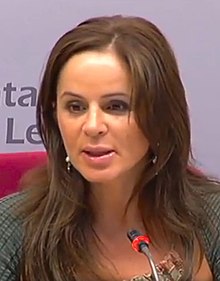
PRESIDENTA . SILVIA CLEMENTE
JUNTA DE CASTILLA Y LEÓN
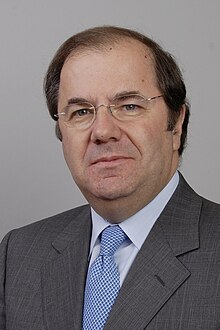
PRESIDENTE. J. V. HERRERA

CONSEJERIAS
TRIBUNAL SUPERIOR DE CASTILLA Y LEÓN
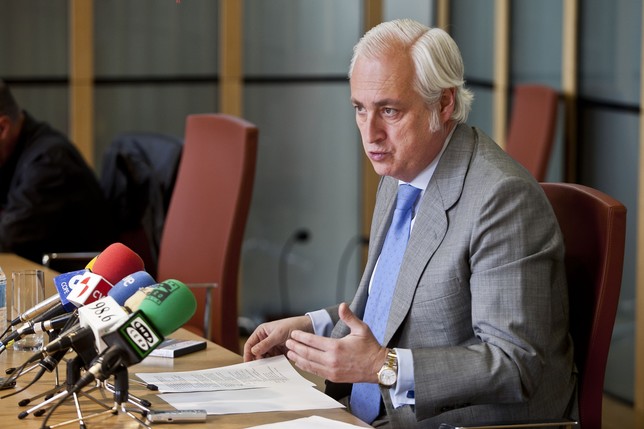
PRESIDENTE
FUNCIONES
Justice emanates from the people andis administered on behalf of the King by judgesand magistrates members of the Judicial Powerwho shall be independent, shall have fixityof tenure, shall be accountable for their actsand subject only to the rule of law.2. Judges and magistrates may only bedismissed, suspended, transferred or retiredon the grounds and subject to the safeguardsprovided for by the law.3. The exercise of judicial authority in anykind of action, both in ruling and having judgmentsexecuted, is vested exclusively in thecourts and tribunals laid down by the law, inaccordance with the rules of jurisdiction andprocedure which may be established therein.4. Judges and courts shall not exerciseany powers other than those indicated in theforegoing subsection and those which are expresslyallocated to them by law as a guaranteeof any right.5. The principle of jurisdictional unity is thebasis of the organization and operation of thecourts. The law shall make provision for theexercise of military jurisdiction strictly withinmilitary framework and in cases of state of siege(martial law), in accordance with the principlesof the Constitution.6. Courts of exception are prohibited.
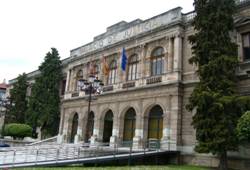

REGIONAL AUTONOMIC LEVEL. ESTATUTO DE AUTONOMIA
DIPUTACIONES PROVINCIALES

PRESIDENTA. Mª TERESA MARTÍN

SEDE PROVINCIAL
Subtema
AYUNTAMIENTO DE ZAMORA

AYUNTAMIENTO
Section 140The Constitution guarantees the autonomyof municipalities. These shall enjoy full legalentity. Their government and administrationshall be vested in their Town Councils, consistingof Mayors and councillors. Councillorsshall be elected by residents of the municipalityby universal, equal, free, direct and secretsuffrage, in the manner provided for by thelaw. The Mayors shall be elected by the councillorsor by the residents. The law shall laydown the terms under which an open councilof all residents may proceed.

ALCALDE. F. GUARIDO

CONCEJALIAS
AUDIENCIAS PROVINCIALES

JUZGADOS DE ZAMORA
